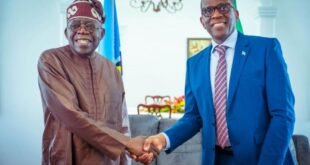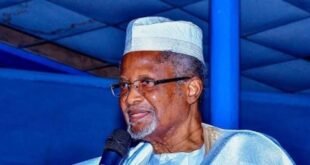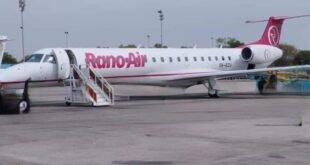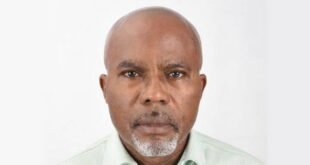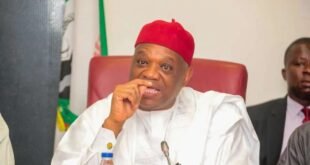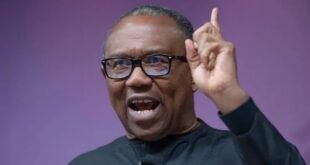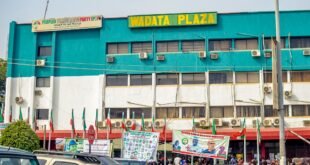To get water, residents are forced to use unsafe water supplies and poor sanitation to survive.
Although billions of naira have been injected to provide drinking water to the people of Anambra State over the past few years by successive governments, many residents still struggle daily to access clean and drinkable water. THE GLORY OF CHIDALU report
Visits to at least five communities by this reporter revealed the daily struggles residents face in finding water, a challenge mirroring that faced by many other communities in the Southeast.
For mothers like Ujunwa Onyeka, access to clean water is hard to come by. Ms Onyeka lives in Umuoji, a community in Idemili North Local Government Area of the state. She struggles every day to get enough water for her household, she told UDEME.
“Since I came to Umuoji ten years ago, I don’t remember ever having access to quality water,” he said. “We use boreholes opened by individuals who extort exorbitant prices from us. We buy a gallon for 50 naira and 100 naira if there is no electricity.”
“Most of the time, they sell water based on how they feel. For example, the one closest to my house only sells when there is light, and the owner feels kind enough to open it to the public.”
For Ogechukwu Ojiofor, a hairdresser and salon owner in Nkpor, a small town in the heart of Idemili North Local Government Area of the state, it is almost impossible to get access to enough water to run his salon business.
“You know, in a salon, we need water to wash and style hair,” she said. “My shop is in the heart of a busy city, which is just shops. That means there is almost no running water supply near my place of business. I have to carry a gallon of water every day to work to make sure my business runs smoothly.”
For school owner Blessing Onwudinjo, who runs a nursery and primary school in Ifitedunu in Dunkofia Local Government Area of the state, “providing good water supply for the children is also a struggle.”
“As school administrators, we use a lot of water to keep the environment clean and healthy for the children,” she said. “Most of them urinate or defecate on their bodies, and you need water to wash their clothes and bathe them.”
“Even their toilets need to be cleaned constantly. Therefore, it is important to ensure that there is always water in the place.
“Getting it is not easy. I pay a commercial water vendor to provide it every month, even though this basic facility should be accessible to everyone.”
Interventions to solve challenges
Many residents of the communities visited stated that assessing clean and affordable water in Anambra State is a difficult task.
Despite huge budgets being allocated annually for water supply projects in the state, clean water through public pipes is almost non-existent in Anambra State.
In the last 13 years, the Anambra State government has spent over N49 billion on the construction and rehabilitation of boreholes. Despite this huge amount, more efforts need to be made to address the water-related issues in the state.
Abandoned and defunct water projects are scattered across the state. For example, in Umuoji, the public water system has been abandoned for years. The same is true in various towns visited in the state.
ALSO READ:FEATURE… Climate Change: How windstorms damaged schools, places of worship in Benue, jeopardizing children’s education
In 2020, the Anambra State Government collaborated with the European Union (EU) to rehabilitate the Otucha Water Scheme and the Obizi-Uga Regional Water Scheme, which will provide water to communities in Anambra East and West, including those in Aguata Local Government Area of the state.
The Otucha Water Scheme is meant to provide water to the people of Umueri, Aguleri and Umu-Otucha, while Obizi-Uga provides water to Uga, Isuofia and Ekulobia. The project was inaugurated by Governor Willie Obiano in 2020. He promised to inaugurate the project in April 2020, but when this reporter visited the site, it was discovered to be abandoned.
However, the government is currently implementing plans to revive it.
The same goes for the Onitsha Water Scheme, funded by the World Bank and the African Development Bank, which was originally planned to be completed in 2020. However, the project is still ongoing.
In 2015, the Peter Obi administration built 17 water schemes in partnership with international donors, namely the European Union, UNICEF and the Federal Government of Nigeria, as part of efforts to achieve the 2015 MDG targets in the water supply sector. Residents said the projects failed due to lack of maintenance under Mr Obiano’s administration.
Charles Soludo’s administration in 2023 promised to revive the state’s major water schemes: Awka, Nnewi, Onitsha and Otucha. While there have been ongoing efforts to fulfill this promise, residents say more needs to be done to ensure water reaches the right communities, not just the state’s major cities.

One of the newly constructed piped water taps in Awka.
To address this water challenge, the House of Representatives passed a bill establishing the Anambra State Water Supply and Sanitation (WSS) Act of 2015. The bill, which was signed into law by Governor Obiano, established the Anambra State Asset Holding Company, the Anambra State Small Towns Water and Sanitation Agency (STOWA), the Rural Water and Sanitation Agency (RUWASSA), and a Regulatory Commission to oversee and facilitate water supply in the state.
However, of all the existing institutions, only RUWASSAwhich is currently funded by the European Union (EU), has been established since 2015. Nevertheless, all these institutions still appear every year in the country’s government budget.
Funds are injected annually
Huge funds have been injected over the years to address water challenges in Anambra State. In 2013, capital expenditure on water resources and rural development was N2,642,733,734.41; N3,985,000,000 in 2014; N1,512,280,000 in 2015; N1,663,507,996 in 2016; N1,746,683,435 in 2017; N1,203,600,000 in 2018; N892,500,000 in 2019; N3,750,000,000 in 2020; N3,071,000,000 in 2021; N7,123,000,000 in 2022; and N1,200,000,000 in 2023.
In addition, the Anambra State Ministry of Public Utilities and Water Resources in subsequent years had an estimated budget of N4,789,290 in 2013; N130,500,000 in 2014; N150,000,000 in 2015; N156,750,023 in 2016; N 164,587,550 in 2017; N5,396,200,000 in 2018; N5,666,010,000 in 2019; and N5,949,310,500 in 2020.
Daily struggle
Despite heavy investment in the state’s water supply sector, residents still struggle with access.
Christiana Igbokwe, a resident of Ezinifite, a community in Aguata Local Government Area of the state, narrated how she almost lost her child to diarrhoea as a result of consuming unclean rainwater.
“Last year, I almost lost my second child, Obinna, because he consumed unfiltered and unsanitized rainwater,” she said. “We had no light for days and, as a result, no water supply. We were forced to drink rainwater, and that led to a serious illness that almost took my child’s life.”
For Gift Ikemba, another resident of Umudioka, a remote town in Njikoka Local Government Area of the state, boiling water before use has been a big help, even though he finds it stressful.
“For me, I boil the water before using it, because I am not sure about the purification process.
“This is a blessing for me, but there is something that can be done to ensure that people have access to quality water supply. Not everyone can afford to buy a bag of drinking water for 450 naira.”
Favour Anyanwu, a student at Nnamdi Azikiwe University, tells a sad story of how he missed his exams due to lack of water.
“Last year, I didn’t take the exam because I was busy looking for water to bathe and arrived late.
“Last year, our hut was flooded and our well was contaminated. Since Ifite usually has minor problems, we couldn’t pump water, and our next option, the well, was already contaminated. I had to look for water around the neighborhood and ended up being late for class.
“Another challenge I face with water in the state is the cost of buying purified water every week. Awka water is salty and yellowish. Sometimes you can barely cook with it, so drinking it is not an option. So, we are forced to drink purified water and sometimes cook with it. As a student, this is a huge financial burden because I have to buy at least three water bags every week, and each bag costs 450 naira.”
Ebede Okoli, a resident of Nawgu, a community in Dunkofia Local Government Area, spoke about the risks faced by children. He said that in a bid to fetch water, parents release their children to some unsafe areas.
“You see little children pushing carts with gallons of water on busy roads,” he said. “Some even go to remote and deserted roads to fetch this water. It’s wrong, but parents have limited options, and you can’t blame them.”
“One day, a tricycle nearly killed a man as he tried to cross a busy street with two gallons of water.
“Young girls are also exposed to dangerous places due to lack of water.”

Residents wait to fetch water in Anambra State
Clean water supply is essential to promote healthy living in communities. Lack of access to good water supply will endanger communities.
According to UNICEF, contaminated water causes diseases such as diarrhea, which kills more than 70,000 children under the age of five every year. This is one of the challenges faced by Anambra residents due to the poor water supply in the state.
In order to obtain water, people are forced to use unsafe water supplies and poor sanitation to survive. Water vendors such as water supply business owners and water tankers take advantage of this situation to produce and sell unsanitized water to people desperate for survival.
Attempts to get an official reaction
UDEME contacted the commissioner of electricity and water resources, Julius Chukwuemeka, regarding its findings in the communities visited but was denied access.
In addition, a disclosure letter was sent to the commissioner’s office requesting details of the Anambra water supply project and efforts to provide potable water to affected communities. The disclosure letter was not responded to.
According to the commissioner’s secretary, who responded on his behalf, “we do not provide such information to the media and will not allow any interviews regarding the project”.
This reporter also contacted the commissioner through his social media accounts but he is yet to respond. Also, all attempts to reach the chairman of Anambra State Urban Water Asset Holdings Corporation (ASUWAHC), Ikeobi Ejiofor, proved abortive.
This story was supported by funding from the Center for Journalism Innovation and Development (CJID).
FEATURE post… Anambra Water Crisis: Billions spent but residents struggle for clean water appeared first on Latest Nigeria News | Headlines from Ripples Nigeria.
 JamzNG Latest News, Gist, Entertainment in Nigeria
JamzNG Latest News, Gist, Entertainment in Nigeria
